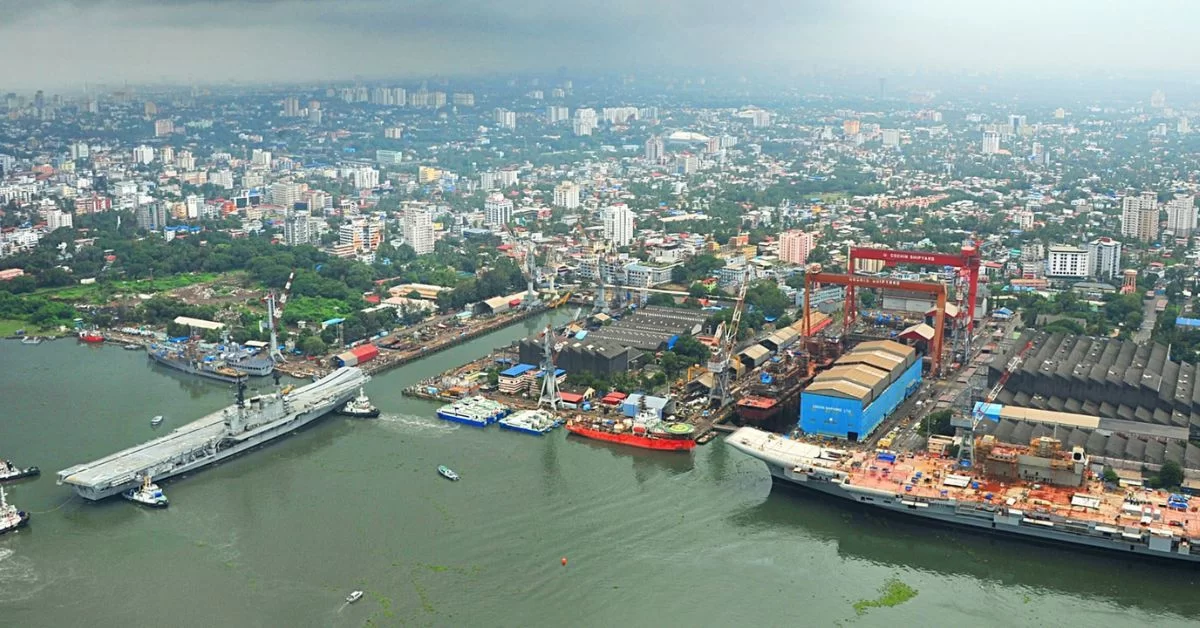Mitsui O.S.K. Lines (MOL), one of the world’s largest shipowners and a Japanese shipping giant, has revealed to Indian media that it has begun discussions with Indian shipyards, including Cochin Shipyard, to diversify its vessel procurement channels and expand beyond its current reliance on China, Japan, and South Korea. This move aligns with the Indian government’s strategy to promote the shipbuilding industry’s entry into the international market.

According to disclosed information, over the past three years, MOL has been committed to exploring shipbuilding options at domestic Japanese shipyards, but ultimately failed to overcome the challenge of insufficient production capacity at its domestic shipyards.
Considering the support of the Indian government and the cooperation such as the technology sharing agreement reached between Cochin Shipyard and HD Korea Shipbuilding & Offshore Engineering (HD KSOE), the intermediate holding company of the shipbuilding business of HD Hyundai, South Korea’s largest shipbuilder, there are reports that MOL is in consultation with the Indian government and Cochin Shipyard for the construction of ships.
To advance its shipbuilding industry, the Indian government has formulated detailed plans to develop three major shipbuilding clusters and is actively discussing new projects with shipping companies such as Mediterranean Shipping Company, Maersk, and CMA CGM. As a first step into India’s shipbuilding sector, Western container shipping giants have initiated discussions on ship repair projects.
According to Indian media outlet ETInfra, Captain Anand Jayaraman, Regional Executive for South Asia and the Middle East at MOL India, stated: “In the initial phase, MOL plans to place orders with Indian shipyards for relatively simple ships with lower construction complexity, such as MR product tankers. Subsequently, the company will gradually transition to more complex ships.”
Captain Anand Jayaraman revealed that MOL aims to expand its shipbuilding partnerships beyond China, South Korea, and Japan. As India’s shipbuilding ecosystem matures, MOL also aspires to build ethane carriers in India within the next decade.
Data shows that India accounts for less than 1% of the global shipbuilding industry, while China, South Korea, and Japan account for 40%, 30%, and 20%, respectively. In terms of cost and delivery time, for example, product tankers in India have relatively high shipbuilding costs, with a single ship costing approximately $70 million and a delivery time of 24 months. In contrast, the cost per vessel in China and South Korea is only $50 to $52 million, with a delivery time of 18 months. However, industry insiders believe that policy support from the Indian government is expected to bridge this gap.
Currently, MOL operates a diversified fleet of 935 vessels, ranking as the world’s second-largest shipping company. With 13 vessels flying the Indian flag, it is also India’s fourth-largest shipping enterprise.
Regarding India’s positioning in its global strategy, MOL plans to establish India as an alternative procurement base to achieve supply chain diversification. Media reports quoted Captain Anand Jayaraman as stating that MOL aims to become India’s second-largest shipping company. Shipbuilding operations represent only part of MOL’s overall investment plan in India, with other components including railways and other logistics businesses.


